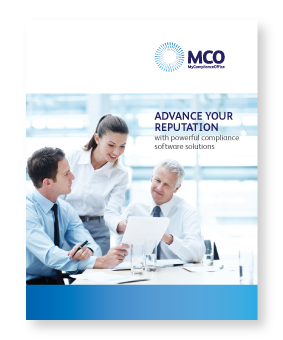A Compliance Officer's Best Tools and Tips for the SEC Exam Process
On September 13, MyComplianceOffice co-hosted a webinar with Milne Legal. Our presenters Dustin Milne, Charles Lerner and Laetitia Mantel discussed what an investment advisory firm outside of the US needs to consider when dealing with the US. This included discussions on what defines a US person, when to register with the SEC, how to handle a SEC exam and what sort of compliance program you should have in place
You can download a full copy of the slides from this webinar.
Full video transcript available below:
|
||
| This webinar was co-hosted with Milne Legal. To learn more visit www.milnelegal.com |


